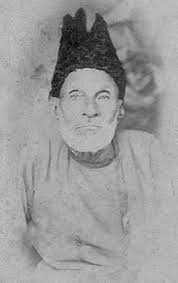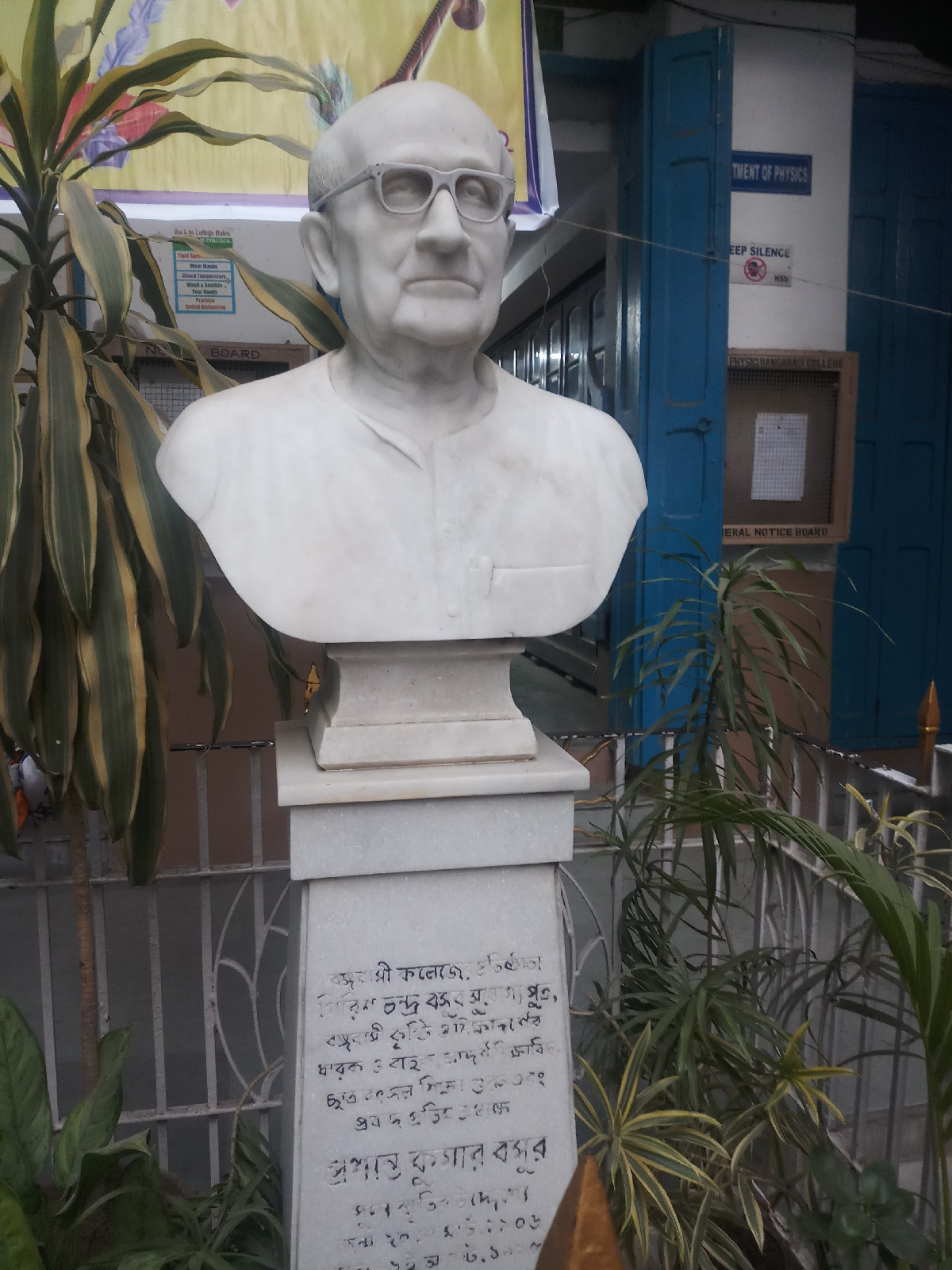Dwijendra Lal Roy
Dwijendralal Ray was a prominent poet, theatre personality, music composer, author and singer born on 18th July 1862 at Krishnanagar. He was the youngest son of Kartikeya Chandra Ray, diwan of Krishnanagar royalty and Prosonnomoyee Debi a descendant of Vaishnava ascetic Advaita Acharya, one of the apostles of the medieval Bengali saint Shri Chaitanya. His elder brothers were Rajendralal and Harendralal, both scholars. In 1887, Ray married Surabala Devi, daughter of Pratap Chandra Majumdar, a renowned homeopath physician.

 |
| Mother |
 |
| Father |
 |
| With his children |
His son was the famous music composer Dilip Kumar Ray (22 January 1897 – 6 January 1980), was musician, musicologist, novelist, poet, essayist and yogi. He was the recipient of the Sangeet Natak Akademi Fellowship.
.jpg) |
| Son, Dilip Kumar Ray |
He passed the Entrance Examination in 1878 and the First Arts Examination in 1880 at the Krishnanagar Collegiate School. Later, he received a B.A. from Hooghly College and subsequently an M.A. in English in 1884 from Presidency College, Calcutta, as a graduating student of the University of Calcutta. He received a scholarship owing to his performance in the Entrance and First Arts examinations, and was second among all students receiving M.A. degrees from the University of Calcutta in 1884. Ray passed the examination from the Cirencester College and was enrolled as a member of the Royal Agricultural College and the Royal Agricultural Society. After obtaining a diploma in F.R.A.S., he returned to India in 1886.
On his return he was appointed as a Deputy
Magistrate and worked in the Departments of Survey and Settlement, Excise, Land
Records and Agriculture, Administration and Judiciary in different parts
of Bengal, Bihar and Central Province. He was appointed the
First Inspector of the Excise Department in 1894, the Assistant Director, Land
Records and Agriculture Department in 1898 and the Assistant to the
Commissioner, Excise Department in 1900. Later again he was appointed Inspector
of Excise Department.
He was known for his pro-peasant sentiment and in 1890, while working for the government, he clashed with the Bengal Governor on the issue of peasant land rights. He was known also for his commitment to the uplifting of women, and his strong stance against Hindu religious orthodoxy and ritual.
His first publication was Aryagatha Part I, songs written between the ages of twelve and seventeen, was published in 1882. "His description of the sea-voyage and his keen observation on the manners, customs, food-habits and dresses of British people" was serialised in a weekly named Pataka and later published by his brothers as Bileter Patra (Letters from England). In 1886, he published The Lyrics of Ind, a collection of English lyrical poems written in England. While at Roman gondola, a local song by the boatmen instilled in him the music for the song ‘Utho Go Bharat Lakshmi’. Ray started editing a journal named Bharatbarsha. His collection Hanshir Gaan was a satire against upper-caste Hindu dominance of religious practices and composed several popular patriotic songs during the 1905 partition.
 |
| House Suro - dham |
 |
| Residence at Gaya |
 |
| Residence at Gaya |
In 1909 Ray moved with his wife to a building at 2/1 Nandakumar Chowdhury Lane named as ‘Suro-dham’. Previous to that he lived at Sukea Street and in this building he established ‘Purnima Milon’ for confluence of men of literature including Rabindranath Tagore. He died of a sudden attack of epilepsy on 17 May 1913.
In 1933, the lane was renamed as D. L. Ray Street. Later this house was converted to an English medium school.
.jpg)





Comments
Post a Comment